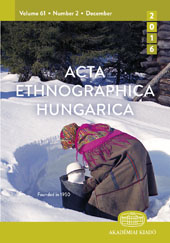РУССКИЕ АНТИПОСЛОВИЦЫ И ИХ ЛЕКСИКОГРАФИЧЕСКОЕ ОПИСАНИЕ
RUSSIAN PROVERBS AND THEIR LEXICOGRAPHIC DESCRIPTION
Author(s): Valery Mikhailovich MOKYENKO, Harry ValterSubject(s): Theoretical Linguistics, Lexis, Sociolinguistics, Eastern Slavic Languages, Philology
Published by: Akadémiai Kiadó
Keywords: anti-proverb; anti-phrase; anti-dictum; transformation of proverbs and phrases; irony and play of words; varying of proverbs; proverbs in mass media; lexicography; paremiology;
Summary/Abstract: This paper discusses how Russian anti-proverbs function in modern speech and mass media. Today, as one consequence of the democratization of speech, the abolition of censorship, and the growing influence of youth speech, this genre of folklore has become very active, exerting significant influence on Russian standard language. Relying on the definitions of the term “anti-proverb” given by Wolfgang Mieder, the authors describe the characteristics and spheres of application of some of these expressions. In addition, the authors propose a classification of Russian anti-proverbs, demonstrate their different properties and applications, refer to their sources and describe prototypes of anti-proverbs and antidictums. Moreover, the authors attempt to propose a sociolinguistic characterization of anti-proverbs, such as “Old – New”, “Traditional – Untraditional”, “Neutral – Ironical” etc., as well as a complex lexicographical description of anti-proverbs.
Journal: Acta Ethnographica Hungarica
- Issue Year: 52/2007
- Issue No: 1
- Page Range: 157-175
- Page Count: 19
- Language: Russian
- Content File-PDF

